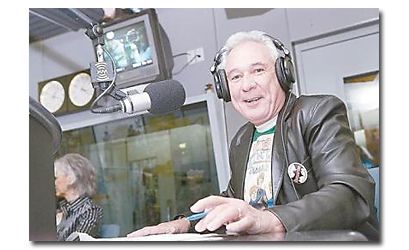|
|
 |
Knowledge Is Key
For Intelligent Decisions
Satellite Logic is a leading,
authoritative source of information in
the Satellite Industry. Located in the
heart of the Silicon Valley, Satellite
Logic provides one of the most
valuable and comprehensive
knowledge bases on the Satellite
market! This is a primary Worldwide
information center which enables our
clients to analyze, evaluate, inquire
and select their best tailored
solutions. Our company sets the
industry standards for targeted
buying leads, reflecting a dramatic
advance over traditional marketing
solutions.
|
|
|
 |

You spend all too many hours in the car and you'd like one source for
sophisticated music choices, a range of news and talk, comedy,
audiobooks, kids' programming, and as full a menu of sports as cable
TV offers. This is exactly what the satellite radio stations have to
offer.
It's really not difficult today to decide that you prefer satellite radio
over regular radio. To begin with, when you have the regular
broadcast radio airing an average of nearly 20 minutes of
commercials per hour, itís easy to become frustrated with not
getting enough of the music or news you are tuning in to hear.
Commercial free stations, however, are just one of the great things
that satellite radio has to offer you. If you prefer music to
commercials (and who doesnít?), satellite radio is a must. But
what's the difference between the satellite radio stations of the
two main providers?
In the US you have two satellite radio service providers to choose
from: XM Satellite Radio and SIRIUS Satellite Radio. Each offers an
impressive selection of sports, talk, and news programming in
addition to commercial free music. The real difference is the specific
programming each offers and which companies manufacturer their
radio receivers. When choosing a receiver, remember that they are
not in any way interchangeable. In fact, each receiver manufacturer
is exclusively paired with a service provider. For example, Pioneer
only offers XM receivers, not SIRIUS. Some automakers now offer
satellite radio in their new cars. Most stick with either XM or SIRIUS,
while a select few distribute both. If you plan on buying a new car,
choosing the satellite radio option is a great idea as you donít have
to worry about any setup. You can also add satellite radio to your
vehicle later on, either having it professionally installed or by doing
the simple setup yourself.

XM's exclusive satellite radio stations include the Major League
Baseball, Home Ice, Oprah & Friends, Opie & Anthony, MLB, Playboy,
NASCAR, MTV & VH1 just to mention a few. Sirius' exclusive stations
include: NHL, NBA, NPR, OutQ, Maxim Radio, NFL Radio, NASCAR
Radio, Barclays Premier League, Martha Stuart Living Radio, and The
Howard Stern Show.
XM Radio has aggressively expanded their satellite radio's station
lineup to approximately 150 stations, and now includes online
listening with their basic subscription. However, they have increased
their prices and are now dead-even with Sirius Radio at
$12.95/month. XM also offers a special online-only subscription,
great for at-work listeners who don't need or want a car satellite
radio subscription. However, the choices available online are pared
down to 75 channels only.
Sirius was formerly the more expensive of the two satellite radio
providers, but XM now charges the same price for a basic
subscription ($12.95/month). Sirius still lags behind XM when it
comes to numbers of subscribers and satellite radio stations, but
they have a very strong line-up of exclusive stations. They also
reserve the right to charge a $75 early cancellation fee for prepaid/
committed subscriptions.
Satellite services do differ, if s
ubtly. Depending on your interests and
how you use radio, one satellite service will be right for you. Both
services offer an enormous amount of great stuff and also lots of
mediocre programming. Despite the considerable overlap in
programming, a handful of distinctions are so clear that you can base
your decision entirely on them. Baseball fan: XM. Football nut: Sirius.
Movie maven: XM. Howard Stern addict: Sirius. Bob Dylan freak: XM.
NPR lover: Sirius.
If movie soundtracks are your kind of music, XM is the only service
with a satellite radio station dedicated to those sounds, including
long-form profiles and interviews with composers. On the other hand,
if you want Playboy Radio or Korean-language programming, Sirius is
your only choice.
Sirius has the only all-gay channel; XM, the only black talk channel.
As both services reach beyond the early adopters to capture a
mainstream audience, they are looking to big-name celebrities to win
new subscribers. Sirius has staked its future on the uncensored
Stern, while XM counters with bad boys Opie and Anthony. XM has
built its version of public radio around former NPR "Morning Edition"
host Bob Edwards; Sirius doesn't offer original programming of that
kind, but does have the real thing, two channels of shows produced
by NPR.
XM has signed Bob Dylan, Oprah Winfrey and Snoop Dogg as
celebrity hosts. Sirius's stars include Martha Stewart, Deepak
Chopra, Judith Regan and Mark Cuban. But while both services vie
for big names, the main attraction on XM and Sirius is the music.
The tunes are often similar, but how they're presented is the
difference.
|
|
|
|
